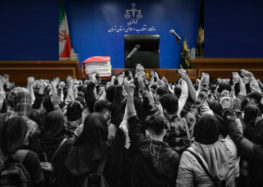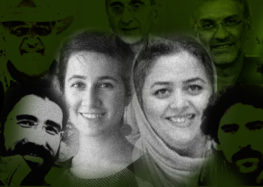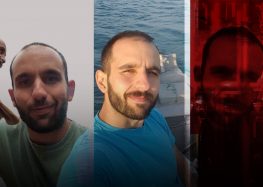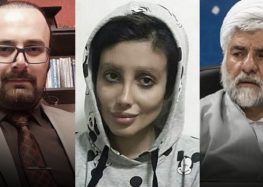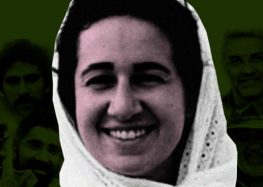Sons of Iranian Canadian Who Died in Evin Prison Sue State Broadcaster For Slander
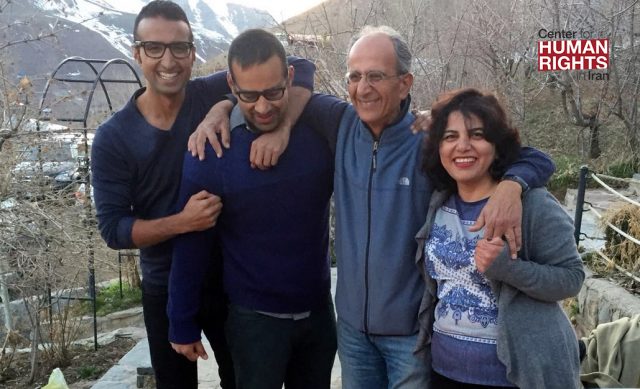
Ramin and Mehran Seyed-Emami have sued Iran’s state-run TV, the Islamic Republic of Iran Broadcasting (IRIB), for slandering their father Kavous Seyed-Emami, who died under suspicious circumstances in Tehran’s Evin Prison in February 2018.
IRIB has a long history of working with Iran’s hardline judiciary and security forces to smear defendants facing politically motivated charges, including by broadcasting forced confessions.
Typically well-staged productions, the confessions and pseudo “documentaries” produced by IRIB are used to defame dissidents, intellectuals, and other individuals whom the authorities wish to discredit, legitimize their prosecution, and amass public support for their sentences.
Four IRIB officials have been named in Seyed-Emami lawsuit, including its director Abdol-Ali Aliaskari, who was appointed by Supreme Leader Ali Khamenei.
“My clients filed a complaint at Branch 9 of the Culture and Media Court against the said individuals for spreading falsehoods with the intention to disturb public opinion, commit slander, make insults and threaten national security,” Payam Derafshan, one of the family’s attorneys, told the state-funded Islamic Republic News Agency (IRNA) on July 15, 2018.
“The display of private family photos in the aired program, ‘Restricted Area,’ violated the Constitution, the Eight-Point Decree of the Founder of the Islamic Republic, the Charter on Citizens’ Rights, as well as the Criminal Procedures Regulations,” he added.
Kavous Seyed-Emami’s family was told he committed “suicide” on February 9, 2018, a few weeks after he was arrested in a crackdown on environmentalists by the Islamic Revolutionary Guard Corps (IRGC).
Five months after his death, an autopsy report has not been released by the Medical Examiner’s office but a preliminary one noted strange marks on his body.
Seyed-Emami, a Canadian citizen who worked as an academic in Tehran, was the chairman of the Persian Heritage Wildlife Foundation whose current and past staff members and officials have been in detention since late January 2018.
Smearing a Dead Person
On February 13, 2018, a few days after Seyed-Emami’s death, IRIB’s Channel 2 aired “Restricted Area” on its 20:30 news show painting him as a spy who had passed secrets about Iran’s missile sites to US and Israeli intelligence agencies—a bogus charge for which no evidence was presented.
“The authority responsible for arresting my clients’ father had no jurisdiction in interfering in matters of espionage and we reserve the right to file a complaint about this. Also, the charge of espionage has yet to be proven in court… However, regardless of all that, broadcasting this program was essentially in violation of Article 91 of the Criminal Procedures Regulations,” Derafshan told IRNA.
According to Article 91, “Preliminary investigations against suspects must be carried out in secret, except in cases specified by law. All individuals involved in preliminary investigations have a duty to protect its secrecy and violators will be punished for revealing professional secrets.”
Ramin and Mehran Seyed-Emami are currently in Canada. They left Iran on March 7 but security forces have banned their mother, Maryam Mombeini, from joining them.
In June Mombeini was hospitalized for stress after agents entered her home and interrogated her for hours without a lawyer.
According to the opposition news site Kalame, the environmentalists were targeted by the IRGC for opposing the installation of missile sites on protected lands.
“Kalame has received information that the environmental activists are not spies but in fact had resisted the IRGC’s excessive demands to encroach on environmentally protected regions for the installation of missile sites,” Kalame reported on April 16.
The report continued: “Although these regions were registered in the United Nations as protected areas, the IRGC thought it could build military sites there without any problem, thus it went ahead with installing missile silos and equipment. The move met opposition from environmental groups that repeatedly asked the IRGC to evacuate. The groups made it clear that the IRGC was endangering their activities to collect information and take photos of animals and plants for the UN. But the IRGC did not agree and asked these groups to instead submit old photos in their annual reports to the UN. The conflict between the two sides went on for years and eventually, the IRGC’s Intelligence Organization used espionage as an excuse to arrest the environmentalists so that it could continue its activities in the protected regions without any problem.”

